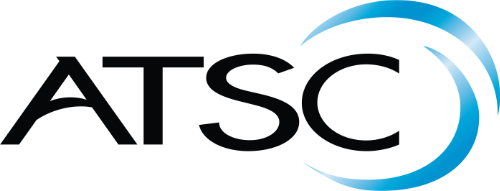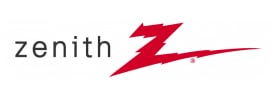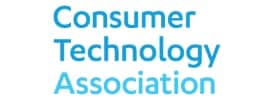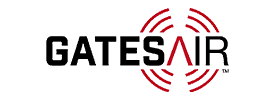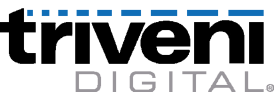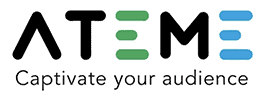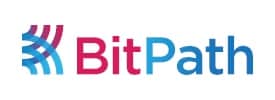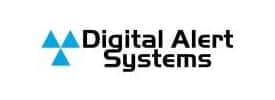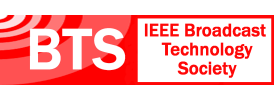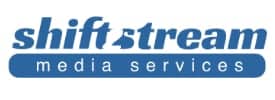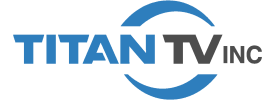- About
- Members
- Sponsors
- Subcommittees
- About Our Subcommittees
- Technology Group 3
- Implementation Team 1 – Advanced Emergency Information
- Implementation Team 2 – India
- Implementation Team 3 – ATSC 3.0 Conformance
- Implementation Team 4 – Brazil
- Implementation Team 5 – Tower Network
- Implementation Team 7 – Caribbean
- Implementation Team 8 – Automotive
- Planning Team 4 – Future Broadcast Ecosystem Technologies
- Planning Team 5 – Automotive Applications
- Planning Team 6 – Global Recognition of ATSC 3.0
- Planning Team 9 – Sustainability
- Technical Documents
- News
- Events
- Spotlight ATSC 3.0
- Contact Us
- Member Login
- Member Meetings
- Advanced Search
Search Site
Member Links
- About
- Members
- Sponsors
- Subcommittees
- About Our Subcommittees
- Technology Group 3
- Implementation Team 1 – Advanced Emergency Information
- Implementation Team 2 – India
- Implementation Team 3 – ATSC 3.0 Conformance
- Implementation Team 4 – Brazil
- Implementation Team 5 – Tower Network
- Implementation Team 7 – Caribbean
- Implementation Team 8 – Automotive
- Planning Team 4 – Future Broadcast Ecosystem Technologies
- Planning Team 5 – Automotive Applications
- Planning Team 6 – Global Recognition of ATSC 3.0
- Planning Team 9 – Sustainability
- Technical Documents
- News
- Events
- Spotlight ATSC 3.0
- Contact Us
- Member Login
- Member Meetings
- Advanced Search
ATSC Standards Update: Membership Approves Annual A300 Refresh
Posted on April 3, 2024 in ATSC News

Since the last issue of The Standard newsletter, three new documents have been published on the ATSC web site — A/336:2024-02, A/344:2024-02, and A/362:2024-02, which were the result of three amendments described in the last Standards Update column.
The annual refresh of A/300, “ATSC 3.0 System,” has just been approved. In the ballot, which closed on April 3, members voted to A) direct staff to update ATSC references in A/300:2023-03 to their latest versions, B) direct the ATSC President in consultation with the Technology Group Chairman to be given editorial privilege on this document, and C) direct staff to update all ATSC 3.0 Standards and Recommended Practices, with input from subject experts where needed, and publish new year-versions documents.
The A/300 Standard is the central document of ATSC 3.0, presiding over the entire suite of standards and recommended practices that together comprise the full system. A/300 normatively references a particular version of each of the other standards, and each referenced document is interoperable with the others. This allows product developers to address a particular version of A/300 in a given product release, which is important for communication with customers and for interoperability with other products.
ATSC’s goal is to update A/300 annually. The balance between stability and evolution suggests that an annual cadence is a good target. This cadence is just that — a target. More frequent updates are possible if needed, and if no changes are merited, then a given version of A/300 could run for more than a year.
An updated version of the VVC Candidate Standard, A/345, has been published. A/345 describes the video coding constraints on ITU-T Rec. H.266 | International Standard ISO/IEC 23090-3 (“VVC”) when it is used for video compression in the ATSC 3.0 Digital Television System. Any other video coding technologies in the ATSC 3.0 system are documented in their own ATSC Standard(s). A Candidate Standard and may be updated from time to time by the originating specialist group, in this case TG3/S41. The A/345 CS period extends to 30 June 2024. The CS period may be shortened or extended by TG3.
Your Vote Matters!
Voting is an important element of membership in ATSC. All Standards, Candidate Standards, and Recommended Practices must be approved via one or more ballots, conducted on the Causeway workspace. Online voting is easy, but we sometimes receive questions about certain elements of the process; for example, how the Primary/Alternate voter protocols work. Details are as follows:
- Either Primary or Alternate voters can cast a vote on an open ballot.
- The vote of a Primary will override the vote of an Alternate.
- If a Primary voter has cast a vote, then the Alternate will not be able to cast a vote.
- If more than one Primary voter casts a vote on a given ballot, the last vote cast is the one that prevails.
The Primary / Alternate voter setting for user accounts can be modified by contacting ATSC staff.
It is important for Voting Members of the ATSC to participate in ballots. Every ballot on a given document provides three options: Yes, No, or Abstain. Because there are minimum participation requirements for Technology Group and Membership ballots, all members are urged to carefully consider each ballot and vote accordingly. There may be instances where a member has no opinion on the question presented in the ballot. In that case, an Abstain vote may be cast. This is important, since Abstain votes count toward meeting the minimum participation requirements.
All ballots open at 6:00 p.m. ET. The default ballot length is 4 weeks for TG3 and Membership ballots; however, the ballot may be longer or shorter at the TG3 level if directed by TG3. All ballots close at 11:59 p.m. ET on the closing date.
Notification of an open ballot is sent to all voting-eligible members when the ballot opens. Reminders are issued to voters who have not yet voted one week before the close date and again one day before the close date. ATSC staff sends a notification of ballot results on the next business day following the close of the ballot.
ATSC staff are available to answer any questions that members may have on voting.
Posted in ATSC News
News Categories
News Archives
Subscribe
Subscribe to The Standard, our monthly newsletter. Learn More
Join ATSC
ATSC is a membership organization with both voting and observer categories. Voting members include corporations, nonprofit organizations, and government entities, and they participate actively in the work of ATSC. Observers are individuals or entities not eligible to be a voting member.
Subscribe to our Newsletter
Subscribe to The Standard, our monthly newsletter, to stay up-to-date with ATSC news and events around the world.
Site Links
Contact Us
Advanced Television Systems Committee, Inc.
1300 I Street NW, Suite 400E
Washington, DC 20005
Do you have questions about ATSC?
About ATSC
The Advanced Television Systems Committee, Inc., is an international, non-profit organization developing voluntary standards and recommended practices for digital terrestrial broadcasting. ATSC member organizations represent the broadcast, broadcast equipment, motion picture, consumer electronics, computer, cable, satellite, and semiconductor industries. ATSC also develops digital terrestrial broadcasting implementation strategies and supports educational activities on ATSC standards.
© 2024 ATSC
